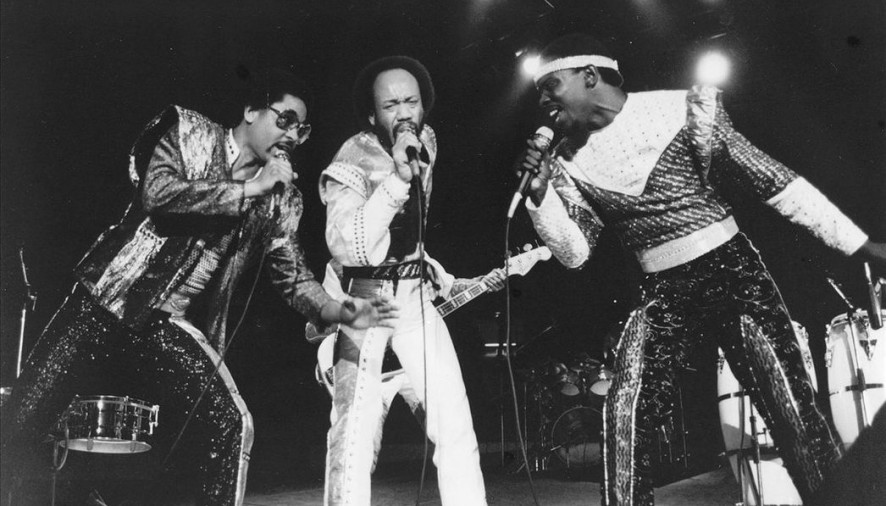With 2016 becoming a unforgiving, musical black hole, consuming some of the most visually and sonically mind-altering stars to emerge from the 20th century, we pay homage to rhinestone-adorned, hip-bending, groove-creating frontman of the genre-defying Earth, Wind and Fire, Maurice White.
White was born in Memphis, Tennessee in 1941, son of a doctor-come-saxophonist, grandson of a New Orleans honky-tonk pianist, an occasional gospel singer himself. White was always surrounded by music, but it wasn’t until the age of 18 that he learned to read music as a percussion scholar at the Chicago Conservatory of Music.
Occupying his early twenties as a session drummer at the Chicago-based record company Chess Records, White was inspired by the influential artists that surrounded him, playing drums for such artists as Fontella Bass on her 1965 single Rescue Me.
White left Chess Records in 1966 to join jazz band the Ramsey Lewis Trio and then the Salty Peppers who, with the addition of an extra singer, percussionist, and White’s own brother Verdine on bass, blossomed into the first form of Earth, Wind and Fire.
Psychedelic, spiritual-funk outfit Earth, Wind and Fire fronted by White exploded onto the disco stratosphere with their self-titled debut album in 1971.
White and over 60 other band members past and present cascaded through the genres of psychedelic soul, new-wave, electro-pop, disco, and funk, making them one of the most eclectic, gritty and accomplished bands of the 20th century.
White’s mission was clear: create music that made people move, feel and think, a music that came from ‘a part of [him] wanting to render itself to humanity’. White described Earth, Wind and Fire’s sound as ‘message music’, contending simple pop tracks to please programmed ears. This was music with an agenda.
White called out the racism in America’s, Disco Sucks movement of the late 70s, as well as taking racism in the music industry head on, putting African-inspired music on the airwaves in a raw and bold fashion.
As self-conscious as their work was dream-like and subconscious, White was aware of his musical roots. Infatuated with African sounds, White introduced the kalimba, an African thumb piano, into the band’s dynamic. This instrument featured heavily in their music, with many of their album’s featuring White’s kalimba solos. This lead to define the band’s unique sound and showcase their dedication to Africanism.
It was this distinct sound, flowing amongst soul, jazz, Latin music and disco that lead Earth, Wind & Fire to become one of the few black bands to cross over into mainstream American radio at the time.
Over the years, White shimmied and funked his organisation through countless accolades, picking up such awards as six Grammys, an NAACP Hall of Fame award, and a place in the Rock and Roll Hall of Fame, as well as being the first African-American act to sell out Madison Square Garden.
Delivering the unworthy listener evocative narratives and a wardrobe more adorned in sparkle and shine than the Canal Mills crowd, every song takes us on a sensory journey through White’s cosmic, Africana, boogie wonderland.
Believing that ‘everything is metaphysical’, Earth, Wind and Fire created spectacles of both innovative music and mind-bending visuals and pyrotechnics, paving the way for many of the stadium acts that followed in their bedazzled shoes.
White declared that ‘most people can’t see beauty or love. I see our music as medicine’, an ethos which guided him through his life. Diagnosed with Parkinson’s disease in 1992, White was forced to retire from Earth, Wind and Fire in 1994, however he maintained control of the band, continuing to produce music and occasionally joining them on stage.
White was a dream-weaver, creating his ‘message music’ and bringing his imagination into the real world. This aspect of the band’s being is paramount and inescapable. In their 1978 single ‘Fantasy’, lead singer Phillip Bailey soulfully croons White’s words, that ‘the world can’t erase his fantasies’, an incontestable fact, more so in light of his death. Countless tributes pour out to White, rendering his spirit and legacy as eternal as his music.
A melodic messiah, White duelled complex chords against simple hooks, creating an untameable sound that continues to capture ears, minds and hearts around the world. ‘September’, ‘Boogie Wonderland’ and ‘Let’s Groove’, amongst many more of the bands’ illustrious singles, have become indented in people’s personal soundtracks.
Conductor, composer and divine creator of some of the most powerful grooves and beloved riffs, haunting the listener on the dancefloor, from nightclub to first dance, White is incontestably one of the most important and influential figures in 20th century funk.
Every flare-wearing, disco-room-frequenting, dancefloor warrior is indebted to White. Funk never felt better and for that, Maurice, we thank you. March on, into Boogie Wonderland.
Jodie Yates

